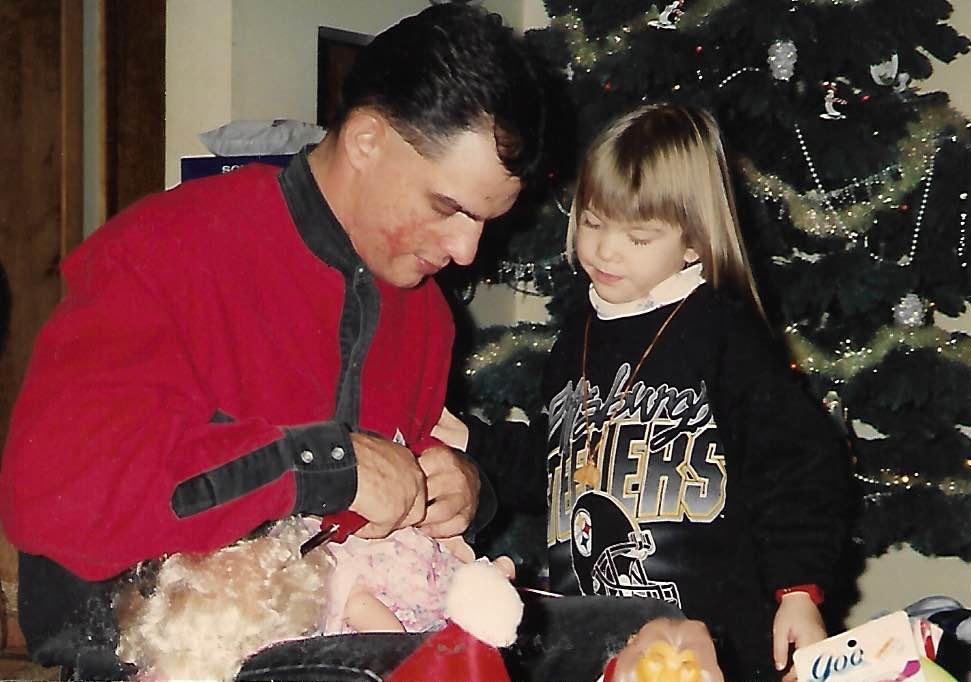My family and I have been trying to prove my innocence since the very beginning. My Mother lost almost everything she had in this fight. As a last ditch effort, my Mother, Sister, and Cousin all got together and created a website which contained all my case files to find the help we needed. At some point, we would finally find Bob Chatelle, who has been helping me look for supporters. The hope remains the same, and that is to find the help we need to prove my innocence. We are definitely not sitting still, and we continue to search every day for what we need. Now, we are reaching out to all of you to help us in any way that you can. If all of you were to help, then it would only be a matter of time. If you can not help, maybe you know someone who can?
***
I never believed I would spend the rest of my life in prison. Even today, somewhere deep in my heart, I believe I will go home. So, I spend almost all of my time in here either doing everything I can to prove my innocence and go home, or preparing myself for my eventual release. Almost everything I do is a variation of those two things. The Ohio Department of Rehabilitation and Corrections (O.D.R.C.) does not have programs to fit what I will need when I get out. So, I am forced to learn on my own. I want to own a farm that is 1400 acres or bigger. I have been studying “Aquaponics” and other alternative farming methods. A lot of what I want to do would be considered “living off the grid”. There is still a lot for me to learn.
***
The inmates here at M.C.I. have a “Lifer’s Community Garden” in which we grow food for local food banks. We average about 6000 pounds of produce or more every year. Inmates who are serving life or long term sentences can volunteer to be in the garden. I am one of the volunteers chosen this year. Working in the garden gives me peace of mind. I really enjoy doing it. It is therapeutic and is an incentive for constructive behavior. It is more than a means for us to give back. For some inmates, it is all they have to look forward to. The issue is, the same as any other positive program in prison, there are staff adamantly opposed to it, and we are always having difficulty finding the resources necessary to continue our support of the food banks. I think every prison should be doing this. I view this activity as practice for my future. A way to refine my trade craft.
***
Optimism is not something O.D.R.C. promotes among inmates. Neither is happiness. I have had other inmates ask how long I have been incarcerated, only to be amazed to learn I have been here 24 years now. I certainly do not carry myself like an inmate who has been locked up a while. They tell me that I appear much more lighthearted, lucid, and easy-going. My sister says something similar to this when she mentions all the trauma I have had in my life. I believe people are the sum total of the experiences they have had. Whether they were good or bad. To regret one experience is to regret who we have become. Sure, there are things I wish would have gone differently, but I learned from those ordeals as well. These experiences are now a part of who I am.
***
I honestly doubt that the incarcerated men and women throughout the U.S. would admit it, but there are a great many things to fear in prison. There are those things they overly dramatize in the movies, of course, but those happen a lot less frequently than society really knows. The greatest fears of inmates are the ones almost no one talks about. The fear of being in these cells when you lose a Mother or a Father, a grandparent, a wife, a husband, or a child. Not being able to say good bye the way everyone else takes for granted. How about the fear of dying in prison alone or just the plain loneliness the majority of inmates face. You can not escape the loneliness, and I have lost family members during my time. I can not listen to Travis Tritt’s song “Drift of to Dream” without a tear welling up. It is these fears that dramatically affect prisoners long after they leave prison.
***
“THE FOOD!” “Oh my God!”, the food is inedible at best most of the time. I have heard people say inmates eat better than school children. I have a test for you to conduct. On any given day, and without warning, switch the lunch meals from one prison and a local school. You will see just how terrible prison food really is, and the school kids will NOT eat what we are forced to consume. The inmates will love you for it though. Aramark, a for profit company, prepares our meals. They do not always meet the daily caloric values, but they never even come close to meeting the nutritional needs of inmates. Inmates consistently show signs of malnutrition, but they contend we are getting the recommended daily calories. All of this also leads to higher medical costs within the prison system. Simply feeding inmates good nutritious food would drastically reduce medical costs and be far less expensive in the long run.

[…] From his blog. […]